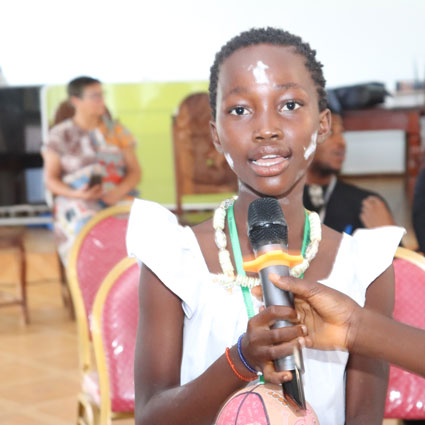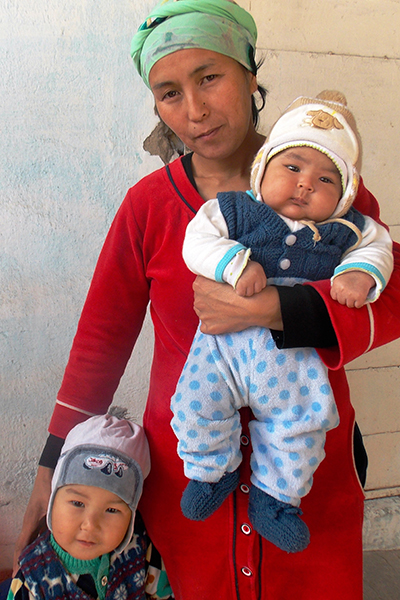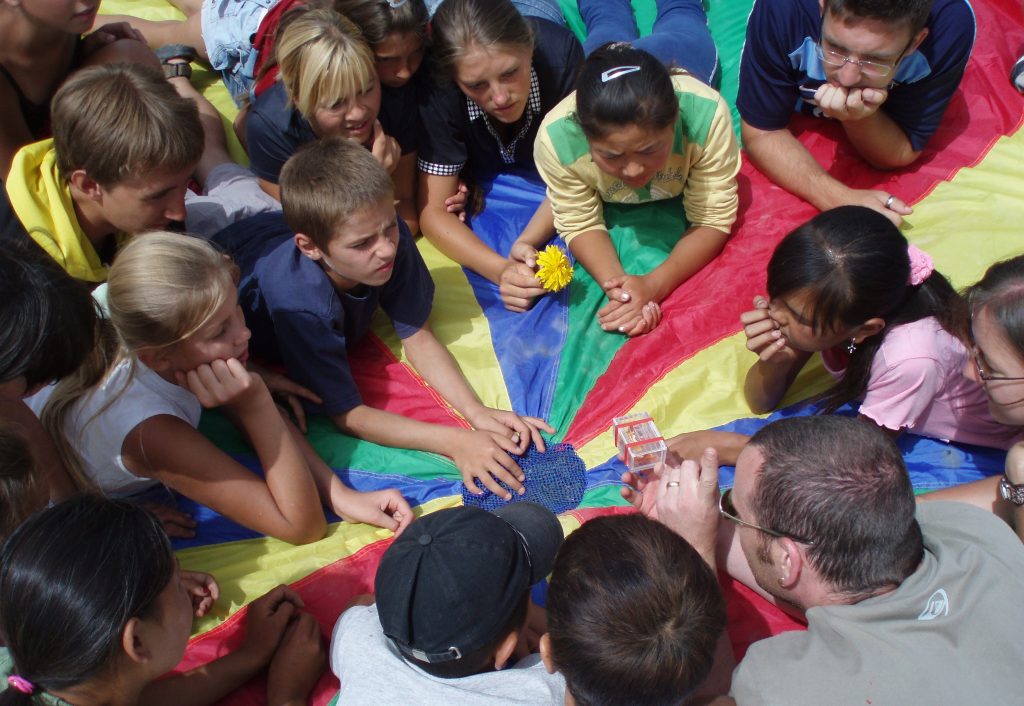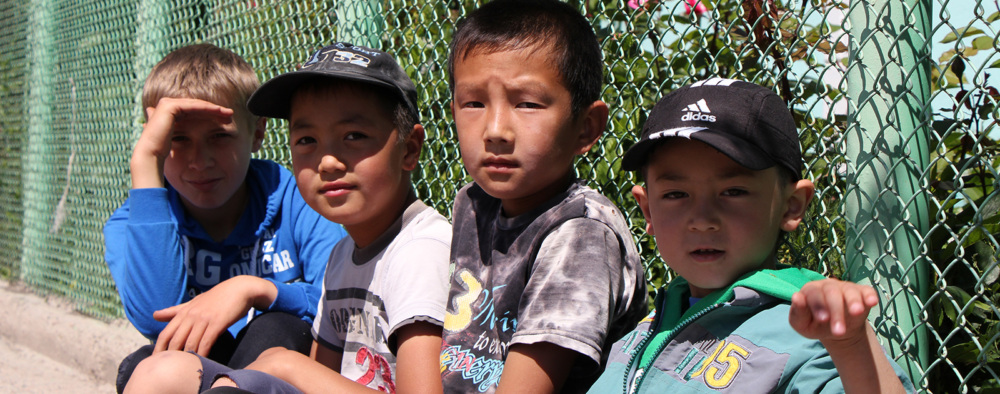
Education
Education, Safety and wellbeing
Located in Balykchy, Kyrgyzstan, Children of Tien-Shan provides a variety of crisis services to children and youth – from infants to age 18 – who are at risk of neglect and abuse.
[image_caption caption=”After struggling to care for her children as a single working parent, this mother received support from Children of Tien-Shan and the family was able to stay together. © Children of Tien-Shan” float=”alignright”]

[/image_caption]
No one would deny that this is important work. But depending on what data you look at, the accomplishments of this community-based organization can appear vastly different.
If we define success strictly by growth in the organization’s budget and the number of children served – which possibly indicates program expansion – Children of Tien-Shan doesn’t appear overly impressive. Over the course of its six-year partnership with Global Fund for Children, it steadily served between 100 and 150 kids each year. Its budget remained relatively consistent as well, around $50,000.
But listen to the story of how the organization evolved, influenced, and innovated within its context … and you get a very different perspective on what success can look like.
At GFC, we’ve been working hard to better understand how change happens and how we can measure it. Children of Tien-Shan is an excellent example of why this evolution is so important – because simple numbers don’t tell the whole story.
I recently spoke with Irina Trofimova, founder of Children of Tien-Shan, to learn more about how her organization has grown and adapted over the years. She explained to me that her organization started out by providing emergency shelter and counseling for children experiencing abuse and neglect, with the eventual goal of reuniting them safely with their biological families.
But over time, they realized that safe family reunification was not always possible and in the best interests of the child. In response, Children of Tien-Shan began to explore a foster care model – a completely new idea in Kyrgyzstan.
“Back in 2005, when we began our pilot foster care program in the Issyk-Kul region of Kyrgyzstan, we were the only organization to do so,” she said. “No one else in the country was engaged in the development of this model.”
Kyrgyzstan is home to thousands of children living in orphanages and government-run boarding schools, which struggle with a lack of resources and are often unable to provide children with proper care or quality education. Children of Tien-Shan believed that foster families would offer better care and support.
“We were driven by the needs of children and their families,” Irina said. “There was a need and it came from the community – not from us.”
In 2007, due to the success of their pilot program, Children of Tien-Shan was commissioned by the government to help draft a national bill on foster care. After years of legislative obstacles, the bill was fully accepted in 2014.
“Our biggest achievement is that, after a long study of this model, piloting it in our region, promoting it at the local level, working on the bill, lobbying again, and promoting foster care on a national level – it finally was accepted and began to work,” Irina said. “We are able to have a long-term impact on the lives of a huge number of children.”
[image_caption caption=”Children from the shelter play a parachute game during summer camp. © Children of Tien-Shan” float=””]
 [/image_caption]
[/image_caption]
Because of the bill, Children of Tien-Shan, other local NGOs, and international agencies like UNICEF can develop foster care networks across the country with financial support from the government.
“By adopting this bill, the government cannot ignore our voice anymore,” Irina said.
Throughout this time, while Children of Tien-Shan was helping to forge a new, nation-wide model for foster care, it was also deeply and profoundly impacting the more than 100 children in its care.
Irina told me about one girl whose father sold her into slavery when she was ten years old. After her enslaver died, she ended up on the streets, and eventually came to live at Children of Tien-Shan’s shelter. The organization helped her to heal and eventually go back to school – today she is a social worker and will soon become a mother for the first time.
“She is deeply convinced that her life’s vocation is to help children who, like she did, find themselves in difficult life situations,” Irina said.
So the number of children the organization served didn’t grow – but does that matter when we’re talking about stories like this?
I asked Irina what she wants donors and funders like GFC to know, when it comes to how best to support NGOs. She answered by summing up exactly what we at GFC are striving to do every day – and what we’re determined to get better at.
“Listen to local NGOs and be sensitive to them; trust them in choosing tools for implementing programs,” she said. “To help local NGOs to grow and become stronger, give them enough time for this process.”
“Understand that no one knows the situation better than local, community-based organizations. They might be small, but still, they know exactly what is going on in their community and therefore they understand how to solve the problem.”
